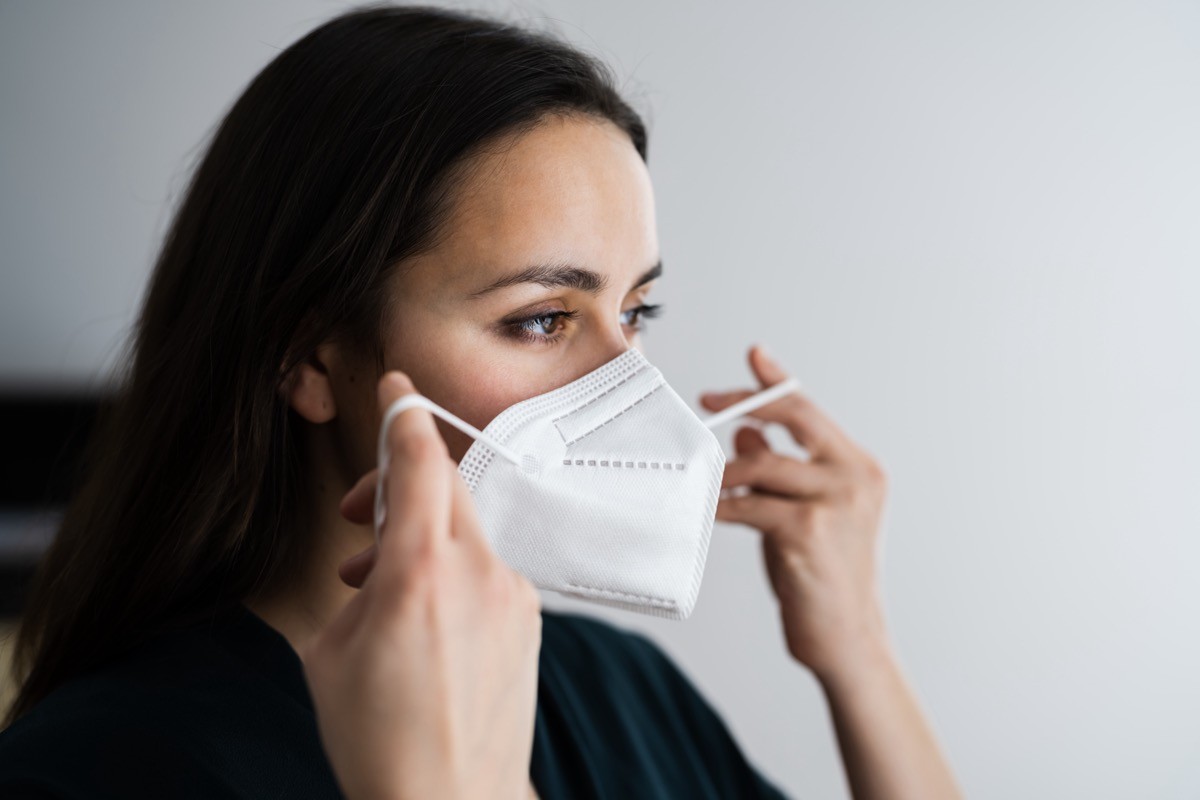Virus Expert Just Issued This COVID Update as Surge Continues

As the COVID-19 pandemic continues to evolve, new challenges emerge, particularly during the current summer wave that has caused COVID levels to spike to “very high” levels in 27 states and Washington, DC. Dr. Michael Osterholm, a leading expert on infectious diseases, offered crucial insights into these developments a few days ago on the Ralph Nadar Radio Hour. Despite the public’s growing complacency, Osterholm warns that the virus remains a significant threat, especially to vulnerable populations. He notes, “We are seeing about 725 deaths this week with COVID in the United States, and discusses the complexities of vaccine efficacy, the importance of ongoing testing, and the persistent risks of long COVID. With vaccine protection waning and new variants emerging, Osterholm emphasizes the need for continued vigilance, especially as many dismiss COVID-19 as a mild illness. His essential update serves as a reminder that, while some may feel the pandemic is over, the virus continues to pose serious risks that cannot be ignored. Here’s everything he said that you need to know.
RELATED: COVID Levels Are “Very High” in These 27 States
Osterholm Recommends Getting the New Vaccine That Just Came Out

Dr. Osterholm emphasized the importance of getting the newly approved mRNA COVID-19 vaccines from Pfizer and Moderna, now available to the public. He noted that vaccine protection, much like that of the flu shot, decreases over time, especially as new variants emerge that can bypass immune defenses. “We had to learn that with coronavirus infections, somewhat like influenza, the protection waned over time,” Osterholm explained. This diminishing effectiveness means that an additional dose may be necessary every four to six months, particularly for those at high risk. Osterholm urged eligible individuals to get the new booster, acknowledging that while it may not be a perfect solution, it is crucial for reducing serious illness and deaths, especially as COVID-19 remains a significant threat.
He Says COVID is Not Just Some “Mild Flu”

The public’s perception of COVID-19 has shifted significantly, with many viewing the virus as no more serious than a common cold or mild flu, especially during periods of lower case numbers. “Some people are reviewing COVID in the surge during the summer as just like the common cold or just a mild flu,” Osterholm remarked, reflecting on the dismissive attitude some people have developed.
Despite the vaccines’ effectiveness in reducing severe illness, hospitalizations, and deaths, they are not as effective at preventing infection or transmission. “One of the challenges we have is pursuing the prevention really of not infection—because we can’t; these vaccines are not good at preventing you from getting infected or even from you transmitting the virus. But what they can do, which is critically important and why I always get my vaccine as soon as I can, is they do really reduce the risk of serious illness, hospitalizations, and deaths,” Osterholm emphasized.
People Need to Understand There is Still Risk, Osterholm said

However, convincing people to continue with vaccinations and other protective measures has become increasingly difficult. Osterholm shared his observations of public behavior, noting that most people seem to believe the pandemic is over. “Today, most people said, ‘I’m over this, I’m done.’ I just got off a plane yesterday from San Francisco to Minneapolis. I had gone out the previous two days, and there were very, very, very few people who had any kind of respiratory protection on, even those who might’ve been well over 65,” he observed. This complacency could have dire consequences, as evidenced by the ongoing COVID-related deaths. “Unfortunately, that will result in what I just said—725 deaths last week in this country from COVID. And how do you get people to rationalize and internalize risk?” he asked.
Beware the Threat of Long COVID

Long COVID remains a significant concern, with ongoing research indicating that vaccination may reduce the likelihood of developing this condition. “This is a challenge, and the good news is—and it may be a combination of some acquired immunity, which is not fully protective against COVID getting infected again, but it is protective against getting long COVID as you noted—and we are seeing clearly reduced rates of long COVID in people who have previously been vaccinated,” Osterholm explained.
Osterholm also shared his personal experience with long COVID, describing how it affected him after his only infection in March 2023. “Long COVID can surely be a challenge. I became infected—the only time I’ve been infected was in March of 2023—and in that time period, I developed a long COVID picture for about four to six months where I was extremely fatigued. I had real memory issues,” he recounted. This highlights the persistent risks of COVID-19, even for those who may have avoided severe initial symptoms.
Remember the Importance of Testing and Public Health Response

Testing remains a crucial component of managing COVID-19, especially for those at higher risk of severe illness. Osterholm stressed the importance of testing, particularly to access treatments like Paxlovid, which can significantly reduce the severity of the disease. “First of all, you want to test because of the fact that depending on who you are, again, if you’re one of those individuals at increased risk for serious illness, clearly you should take the drug Paxlovid,” he said.
He also addressed the current challenges in accessing tests, noting that funding for widespread testing has dwindled. “Now one of the questions is how available are tests today? And that’s a challenge, and we’re trying to work on that issue. The funding that originally came through the CDC from the US government to support testing has basically evaporated,” Osterholm stated. Even expired test kits can still be useful, though there is a risk of false negatives. “Even if you get a box that’s expired, it’s better to use that to test with than if you’re not going to test at all. And you’ll just know that there’s a possibility you may have a false negative, meaning that you really are positive, but it doesn’t pick it up in the test,” he advised.
RELATED: Experts Say You May Want to Pull Out Your COVID Masks—Here’s What to Know
Who Should Wear Masks

While the science behind masking is well established, the social aspect of getting people to wear masks consistently remains a significant challenge. “The physics of respiratory protection—we know how to do that. We know how to provide you a mask that can really reduce transmission dramatically, but it’s actually the study of sociology that’s more important,” Osterholm noted, emphasizing that understanding and influencing social behavior is key to effective public health measures.
For those at higher risk, such as individuals over 65 or those with underlying health conditions, wearing masks during times of high COVID activity remains important. “For many people, I can understand if you look at their big portfolio of risk, COVID is low in that risk picture for dying, for being seriously ill. Doesn’t mean they won’t get infected. But again, it comes back to the point that we’ve been talking about—there is a subsection of our group in this country over 65 years of age, people who have actually had underlying immune conditions, they should be wearing masks,” Osterholm advised.